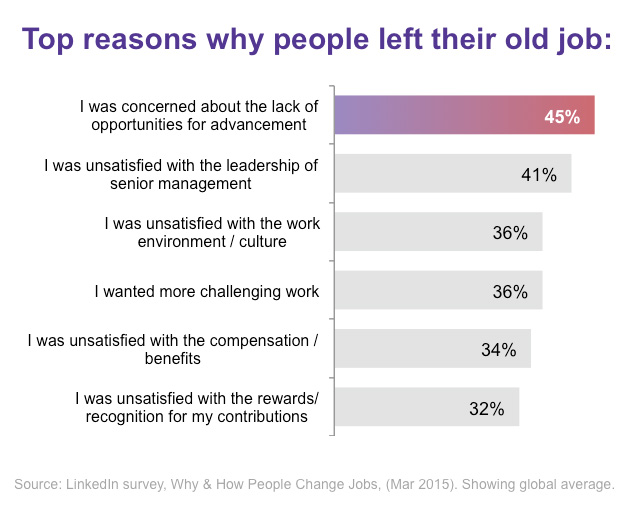16 Aug 7 Steps To Gain and Keep Your Employees’ Trust
Running a business that requires you to employ staff is no easy task. You have the right location, you have the right business idea and you equipped your office with all the gadgets and furniture. Now it’s time to find the right staff. What constitutes for the right staff? While some may say the answer is it’s educated and skilled personal I believe it’s something much bigger than that, it’s something that takes a lot of effort to acquire and a quick second to lose – trust. In my experience of training over 2,000 professionals and employing 160+ staff members I have found that you can teach the skill or hire the most skillful people but if your people don’t trust their employer and just merely show up for a paycheck you might as well start looking for the next employee to replace them. Where there is no trust in the workplace chances are the attrition rate is high and the morale is weak. It doesn’t matter on the industry you’re in. You can be in the business of skincare, shoes, hair care, clothes, chiropractic services, plumbing, roofing, food and restaurant or dance school. This ONE rule applies to them all; employees that believe in the vision of their team leader and trust him/her are better contributors then those that don’t.
How do you gain and keep your employee’ trust? I’m going to give you 7 simples steps to follow that but first you need to understand that it all starts with hiring the qualified staff. Qualified staff is who believes in the mission of the business, understands the core principles of that business and believes in the leader’s vision. So don’t be so quick to hire someone just because they have the right skill sets, conveniently located or happens to be cheap labor. Establish the ground rules and expectations at the interview. Every position should have a Job Description. Express the mission statement before hiring them. Let them in on the bigger picture, expansion, career growth, personal development, etc. Here are the 7 Steps To Gain and Keep Your Employees’ Trust.
- Train by using the right system. Here is a picture of how most employers train new staff. Introduce them to their workspace, give them their login information, and assign a senior staff member to show them the ropes. At this point the employer is hands off and doesn’t have a freaking clue if the new team member is ready to work on their own or not. Call it “the process” or “the system”. Whatever you call it it’s wrong. It’s not duplicable and it doesn’t encourage trust from the new employee towards their employer. Years ago when I started in Direct Sales I learned a system from a very successful entrepreneur that built a sales force of over 142,000 people with over 600,000 customers. I’ve used that system in training, in growing my own Direct Sales business and in hiring staff within the traditional business model. It works. It’s called Tell-Show-Try-Do. Depending on the size of your business or the complexity of your schedule I suggest of doing this yourself, especially if you’re just starting out or small enough to build a core of team members whose trust you won’t be able to destroy with a bulldozer once it’s done.
First, you tell the new hire what to do. You let them know what you expect from them. Second, you show them how it’s done. Make sure they are paying attention and taking notes. Third, let them try to do the same task while you observe and give constructive criticism. Fourth, you allow them to do the task entirely on their own. When a team leader, manager or the “big boss” illustrates this type of training on his or her own it allows the new employee to trust that person’s competency of doing the task. There will be one less thing to bitch about among employees, “All he/she does is order everyone around. I want to see him do my job”. Oops, turns out the boss DOES know how to do the job 🙂
- Deliver on your promises. Employers have a tendency to over promise and under deliver. Especially when spotting a great candidate for the job. I’ve always built my businesses by being the hunted rather than being the hunter. How do you do that? You under promise and over deliver. You build a reputation of someone who builds great culture, provides value and always deliver on set expectations. Word will get out and you will have a line out the door of people wanting to work for you. That is what I call an unfair advantage among other employers. There are too many employees that complain about what was promised at the interview and never happened. You don’t want to be that business.
- Staff priority over client priority. Too many employers focus on winning over a customer rather than winning over their employee’s trust. Understand this, a happy employee = a happy client. If you study great companies with unparalleled working environments such as Southwest Airlines or Starbucks you will learn that they built their multibillion-dollar companies by focusing on their staff and the morale of the employees FIRST. Your staff is your team, your family. You invested in them far more time, energy and money then you did to acquire that one client. The old saying “The client is always right” is as correct as “Your social security will take care of your golden years”. Really? The right client is always right, and still not right away. You never show to the client that they are right and your employee is wrong in front of both parties. Ask, find out, and give the benefit of the doubt to your staff. Show them that you actually care about the incident before taking sides. Don’t neglect what your employee has to say and don’t ever express to the client “He/she will be dealt with, my apologies” before investigating the situation.
- Don’t display favoritism. Not only that I’ve read this in many Human Resources reports but I’ve experienced this in my business practice as well. When anonymous surveys are distributed to the staff (I highly recommend you do this at least twice a year to better understand where you stand as employer) the number 1 complaint is favoritism. Favoritism may come from the management, team leader or the employer him/herself. This may also happen when business partners aren’t on the same page and the employees sense that from one of the partners. How does favoritism show up at the work place? Assignment of easier tasks to one and not the other. Offering or buying lunch. Assignment to certain type of projects repeatedly that may be of interest to other employees. It may also show up simply in the form of language and tone of voice. Favoritism is an express ride to destroying employee morale.
- Invest in your staff. Your team is what holds the business together. Invest in it. The more you invest and pay attention to it the better your ROI. This may come in the form of time investment, knowledge, recognition, events or paid outsourced training. Don’t be afraid to invest financially in training for your staff. Some employers live in fear and that fear is “What if I invest in my staff by educating them more and they leave me?” Don’t be that loser. What the successful CEO and business owners live by is “What if I don’t invest in them and they stay?” These men and women understand the power of growth. Send them to get further trained or invite experts to your place to provide the training. Encourage personal development with your staff. Recommend books, lend them books on the subject or better yet buy them books. You want your employees growing not just professionally but personally as well.
- Be genuinely interested in your people. It’s not just about “Good morning” and “See you tomorrow”. Get to know your team. More importantly, don’t just ask them questions to seem interested but be genuinely interested in them. When they share something about themselves, don’t rush to reply or ask the next question but digest and remember what they just told you. In the middle of the day, randomly ask how their day is going? If you notice they are upset or something just isn’t right ask them what’s wrong? If it’s nothing work related ask them if everything is ok at home? Their home problems may cause trouble at work, from poor performance to bad customer experience. I find it’s easier often times to let them go home and take care of their situation rather than keeping them at work when in reality their mind is somewhere else. Offer if you can help somehow? If you know your employee’s favorite sports team or favorite actor surprise them with a pair of tickets to see the game or that actor/actress. Do it in the form of reward for a job well done. Let them know that you pay attention and that you care.
- Recognition is key. It’s been said that “Babies cry for it and grown men die for it”. Yes, that refers to recognition. Recognize them for a job well done. Recognize them and their great work one on one and in front of their colleagues. Always give credit where it’s due. I once worked with a very successful businessman (his success was in an industry that required very little leadership and mostly was related to industrial trades) where he would learn of a great idea from his business partner or his staff and every time he wanted to talk about that idea in a meeting or group setting he would say “what I was thinking is…” he NEVER gave credit where it was due. THAT automatically made the people that worked with him and for him feel major distrust. Don’t be that guy.
Initially, most people in the work force look for and get the job they want for the money, but they end up staying for the way it makes them feel. People don’t quit the job for the most part, they quit their bosses and the work environment. Take a look at the results from a study done by LinkedIn in 2015.

I just want to leave you with this; don’t be afraid to invest in your staff by fearing they may leave you. Don’t be afraid to build that trust thinking there is no point because they may leave. Lead your people with passion and vision like you lead your business. Be that leader they want to follow and model after. Build that reputation so you become the hunted and not the hunter. In the event someone does leave your team for whatever reason you will have 20 more applicants to choose from when you do the right things by your people.
If you found this article valuable feel free to share it on your favorite Social Media site using the buttons below or to the left of this post.
To your continued success!
Raphael Mavi

